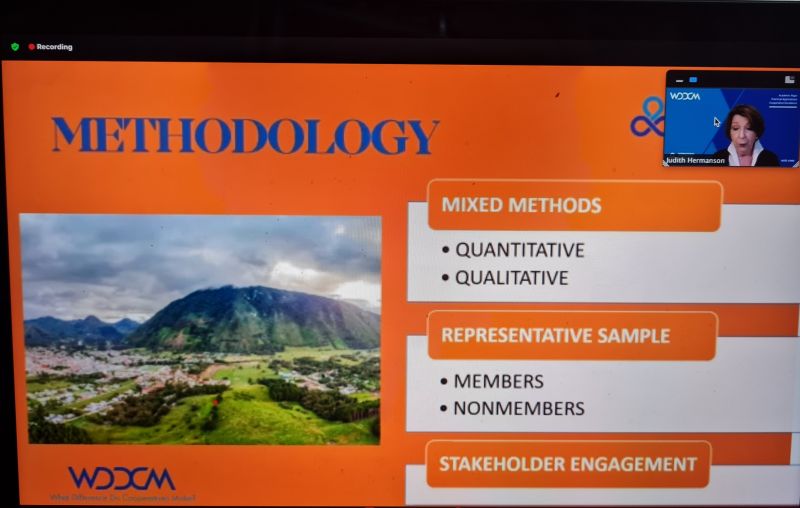
The US Overseas Cooperative Development Council (OCDC) has released a report on the difference that primary cooperative societies are making in the lives of their members in four countries – Kenya, Peru, Philippines and Poland.
The study compares and contrasts representative samples of cooperative members in each country with a comparison group who are not cooperative members. The aim of the research was to understand whether there is a measurable “cooperative difference” for members and communities in which cooperatives operate.
OCDC’s research revealed that across all four countries, members of cooperatives are outperforming national averages. Cooperative members are more likely to have higher than average incomes and are less likely to be very deprived. Cooperative members taking part in OCDC’s research also enjoy a better sense of overall wellbeing and increased resilience. From a gender perspective, collected data showed that women members gain independence and agency from cooperative membership through training, support and leadership opportunities.
According to the study, members of a cooperative are also active members of their communities. Cooperatives allow members to work together and learn from one another, improve themselves, and pool their knowledge and resources to advance their household and community prosperity. Inclusive economic development can be built on a cooperative-enabled model for member and community development.
OCDC executive director Paul Hazen added: “This research project fulfils OCDC’s mission to champion, advocate and promote effective international cooperative development. As we seek to create a more prosperous, democratic and inclusive world post COVID-19, there has never been a better time to build back better and increase investment in cooperative development.”
The findings of the research were presented during an International Evidence Summit on 26 May, which also explored the local contexts in each of the four countries with contributions from Maritza Canales, a cooperative leader from Peru, Professor Piotr Nowak from Jagiellonian University in Poland, and Professor Isaac Nyamongo, Deputy Vice Chancellor at the Cooperative University of Kenya.
Judith Hermanson, director of the OCDC’s International Cooperative Research Group, said: “We found strikingly similar economic, social and community outcomes for each of these countries.”
“We are committed to sharing the evidence and the story it tells with policymakers and practitioners everywhere, and to working with partners in the four countries around the world to help translate the evidence into action through dissemination learning events throughout this year and also taking a deeper dive into the data and supporting more action focused research.”
ICA Director General Bruno Roelants welcomed the study. He said that while the UN had proclaimed that cooperatives in their various forms promote the fullest possible participation in economic and social development of all people, including disadvantaged groups, scientific evidence was still needed to back this claim.
“We need policy-oriented research on which development proposals can then be constructed,” he added. The importance of having cooperative policy proposals backed by cooperative research is enshrined in the ICA’s 2020-2030 strategic plan.”
Mr Roelants also mentioned the need to promote cooperative statistics and pointed to the ILO’s guidelines concerning statistics of cooperatives.
Jeffrey Moxom, research coordinator at the ICA-EU Partnership on international cooperative development (#coops4dev), said: “The message of the study is really clear and speaks for itself, the real question for now is how do we put cooperative development at the forefront of our responses and political strategies for economic and social development.
“This evidence should inform our practice and sets a gold standard for future investigations into the cooperative advantage.”
The full report is available on OCDC’s website.




